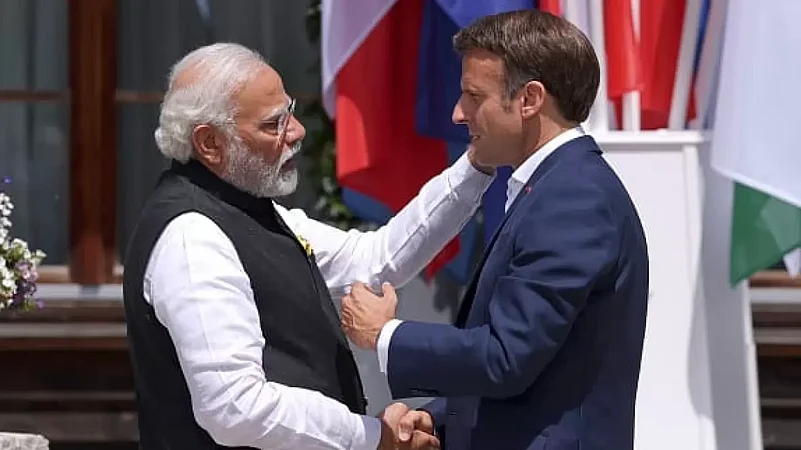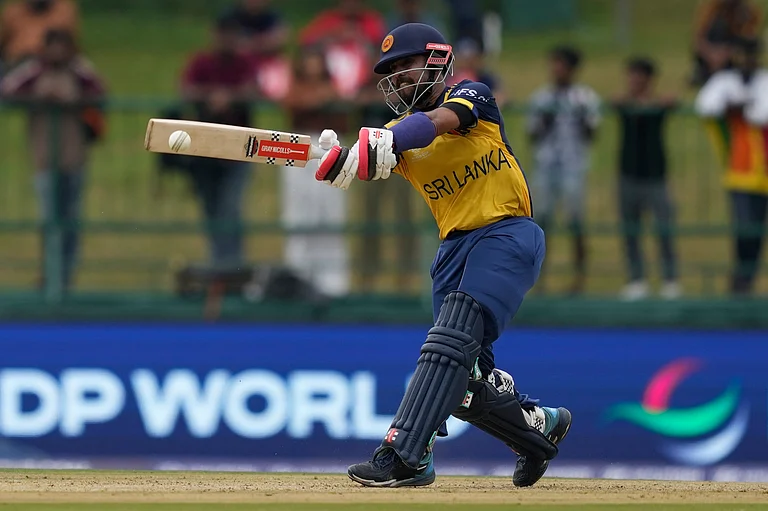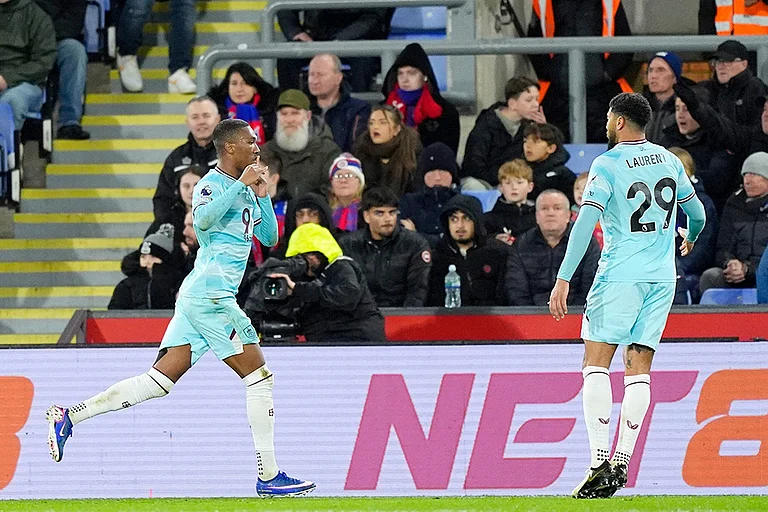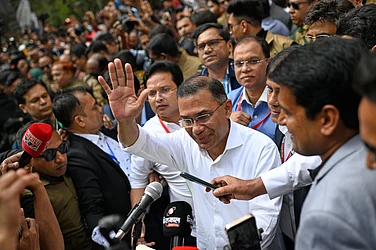As the guest of honour for France’s Bastille Day celebrations, Prime Minister Narendra Modi’s visit to Paris on July 13-14 will be full of pomp and ceremony with a glittering dinner thrown in at the Louvre and a private dinner at the Elysée Palace as French President Emmanuel Macron lays out a grand welcome. A tri-services contingent from India will take part in the Bastille Day celebrations. The visit takes place at a time when France is gradually getting back on its feet after the inner city riots wracked the nation.
France is one of India’s major suppliers of arms and there is the buzz of a big-ticket defence deal involving the transfer of technology and a ‘Make-in-India’ component. However, there is no official word on this, with the Ministry of External Affairs (MEA) refusing to speculate on pacts yet to be signed. Talk is expected to be centred around the purchase of 26 Rafale Marine fighters as well as three Scorpene submarines for the Indian Navy. The submarines will be built in Mumbai’s Mazagon dockyard. Talks for the purchase and manufacture are on but whether they will be clinched now or later is to be watched. Several agreements on clean energy, space, infrastructure, education and cultural exchanges are on the cards.
France saw India’s potential much before other Western democracies:
This year India and France also celebrate 25 years of their strategic partnership. France was one of the first Western countries to sign a strategic agreement with India. At that time France was the one country that realized India’s potential and did not join the gang-up against India like the rest of the world after India’s nuclear tests of 1998. The US, China and most Western democracies united to condemn the Indian tests. But French President Jacques Chirac refused to be part of the bandwagon. Instead, that summer during the European Union Summit in the UK, when then Prime Minister Tony Blair proposed that the EU slap sanctions on India, France opposed the move. Chirac was against the idea of collective sanctions and said it should be left to individual countries to take the call. France prevented EU sanctions against India’s nuclear tests.
The Vajpayee government was grateful and took note of Chirac’s move. Brajesh Mishra, Vajpayee’s National Security Adviser personally went to Paris to thank the French government. Soon afterwards, India and France announced a strategic partnership. Defence cooperation, space cooperation and civil nuclear cooperation constitute the three principal pillars of the India-France Strategic Partnership. President Chirac’s gesture is now a part of institutional memory and India’s ties with France, which were in the first place never bad, took a dramatically upward swing.
India also rewarded France for its support by awarding it a piece of the nuclear pie – the Jaitapur nuclear power plant in Maharashtra’s Ratnagiri district, which has the capacity to produce 9,900 MW of electricity. The project has been held up over several issues including the high cost of production per unit. If this goes ahead, it would be the world’s largest nuclear power generating plant. Since the Fukushima nuclear accident in 2011, public sentiment all over the world had turned anti-nuclear. But climate change is leading to a revival of nuclear energy as it is a nonpolluting source of energy.
When the two leaders sit down for talks, they will review the strategic partnership which has now progressed to several other fields like technology, cyber security, counter-terrorism, sustainable growth and development, supply chains and solar alliance. Russia’s war in Ukraine will also be on the table. From the start of the Ukraine war, when the US and most European allies had put pressure on India to condemn Russia, France had not said anything in public. The French understood India’s compulsions from the beginning, something that the US and others realised later. India and France have similar views regarding a multi-polar world order. Since the end of the Cold War, both countries had publicly endorsed it and are on the same page regarding the need to reform the UN system. France, together with Russia, was the earliest backer of New Delhi’s inclusion in an enlarged UN Security Council.
As Modi gets ready to travel to France, the European Parliament planning a resolution on the ethnic violence in Manipur has come in its ongoing plenary session in Strasbourg. Asked about this at a news briefing on the PM’s visit on Wednesday afternoon, foreign secretary Vinay Kwatra, said it was “totally an internal matter”.
Prime Minister will visit UAE on his way home from France.



























